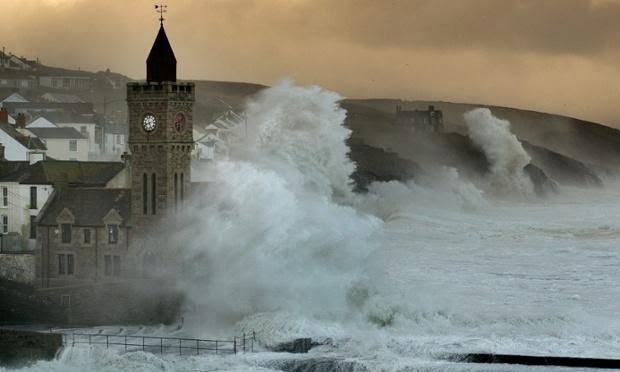February 1943, and wintery Europe finds
itself in the grip of a cruel war's fourth year. The continent has endured perhaps its bleakest ever period, but in the last month, there is a glimmer of hope, and a feeling that the tide of the Second World War is turning – British forces have
captured Tripoli from the Nazis, whilst in the east, the Red Army has scored a
decisive victory in one of history’s bloodiest battles, Stalingrad. It is 25 February, and at RAF Ridgewell, Essex, a young RAF pilot officer, attached to 90 Squadron from the Royal Air Force Volunteer Reserve, catches up with the war latest in the newspaper. Wilfred Roy Major, better known as Roy, has just earned his wings, and has flown his first mission over Germany with Bomber Command. Tonight he flies his second
mission, a dangerous bombing raid on the German city of Nuremberg. It is the first night of a new
‘round-the-clock’ Allied air offensive that will see American aircraft pound
German cities by day, with British bombers attacking them by night. It is a devastating bombing tactic, which will claim thousands of civilian lives, as the war reaches its most terrible of conclusions.
It is 8.39pm, and Roy Major’s Short Stirling, BF410 WP-E, taxis across the runway and takes off, along with 337 other aeroplanes from airfields in the southeast – 169 Lancasters, 104 Halifaxes, and 64 Stirlings. The 1000-mile round-trip will take five hours, during which they will encounter anti-aircraft flak and, even more menacing, German Messerschmitt fighters. If the bomber and its crew survives, they can expect to land back on British soil at around five o’clock in the morning.
 |
| Short Stirlings in flight (Source: WW II Vehicles) |
It is 8.39pm, and Roy Major’s Short Stirling, BF410 WP-E, taxis across the runway and takes off, along with 337 other aeroplanes from airfields in the southeast – 169 Lancasters, 104 Halifaxes, and 64 Stirlings. The 1000-mile round-trip will take five hours, during which they will encounter anti-aircraft flak and, even more menacing, German Messerschmitt fighters. If the bomber and its crew survives, they can expect to land back on British soil at around five o’clock in the morning.
Approaching
Nuremburg at 15,000 feet, the crew spot the fires already blazing in the north
of the city, and in the neighbouring town of Furth. These fires were started by the flares of the 'pathfinders', dropped to mark out the target, so it could be more easily
identified by the main bombers. On this
occasion, poor weather has led to some inaccuracy, and the northern fringes of
the city, along with the aforementioned Furth, are bearing the brunt, along
with the surrounding countryside.
 |
| Nuremberg (Source: German Tragedy of Destiny) |
Wilfred
Roy Major’s bomber has dropped its load, and the crew is looking forward to
returning home. A cup of tea. A soft bed.
English soil. But then there is a
stutter, an almighty jolt that throws the crew violently around their tin can. The engines cut out. Have they been hit by flak on their return
journey? Have they suffered the attack
of an enemy fighter? We don’t know the
cause, but Short Stirling BF410 WP-E is falling frighteningly out of the sky. Sergeant J. Carrick is the first to bail out
of the aircraft. He is also the last,
parachuting to the ground whilst the machine nose-dives into the countryside,
taking the seven other crew members to their deaths. Sergeant Francis John Miles, the
pilot, Sgt Arthur Vivian Derrick Hines, the flight engineer, Sgt George Pettinger, the navigator, Sgt John Henry Dyer, the bomb-aimer, Sgt William Hughes Bevan, the wireless operator, Sgt Eric Howeth Holmes, the air gunner, Sgt Wilfred Roy Major. Aged 21. On only his second mission. A volunteer.
One of nine aircraft that did not return home on that terrible
night.
 |
| Memorial to 90 Squadron at RAF Tuddenham (Source: War Memorials Online) |
Sergeant
J. Carrick was picked up by the German authorities, and spent the rest of
the war interned in Stalag 8B (later 344) Lamsdorf prisoner of war camp. He had the Prisoner of War Number 27633. Wilfred Roy Major and the rest of the crew
are buried at Durnbach War Cemetery, Bad Tolz, south of Munich. The vast majority of those buried here are
airmen shot down over Bavaria, Wurtemburg, Austria, Hassen and Thuringia,
brought from their scattered graves by the Army Graves Service, as well as
those killed whilst escaping from prisoner of war camps, or who died towards
the end of the War on forced marches.
Wilfred Roy is buried close to the cemetery’s Stone of Remembrance, in
Coll. Grave 11, H 1-7. His connection to me is through my grandfather, who was Wilfred Roy's cousin.
First name: Wilfred Roy
Initials: W R
Surname: Major
DOB: Circa 1922
Age: 21
Nationality: British
Date of Death: 26/02/1943
Information: SON OF WILFRED DOUGLAS AND IVY MAY MAJOR OF EARLEY,
READING, BERKSHIRE
Rank: Pilot Officer
Service Number: 141709
Campaign Medals: War Medal 1939-1945, 1939-45 Star
Service: Royal Air Force Volunteer Reserve
Regiment: Royal Air Force Volunteer Reserve
Battalion: 90 Squadron
Commemorated: Germany
Commemorated: Germany




















